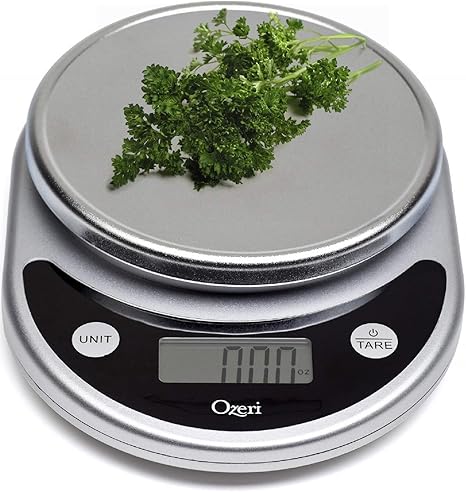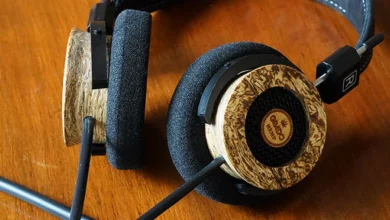What is the Best Type of Kitchen Scales? A Comprehensive Guide

Discover the ultimate guide to finding the best kitchen scales. From digital to analog, we explore the top options and answer FAQs to help you make the right choice.
Table of Contents
Introduction
In the world of culinary perfection, precision matters. Whether you’re a professional chef or a home cook, having the right kitchen scale can make a world of difference. But with so many options available, how do you determine the best type of kitchen scale for your needs? In this comprehensive guide, we’ll dive into the world of kitchen scales, explore various types, and provide you with all the information you need to make an informed decision. So, let’s start with the fundamental question:
What is the Best Type of Kitchen Scales?

When it comes to kitchen scales, there is no one-size-fits-all answer. The best type for you depends on your specific cooking needs and preferences. Here, we’ll break down the different types of kitchen scales and their unique features:
1. Digital Kitchen Scales

Digital kitchen scales have become increasingly popular due to their accuracy and ease of use. These scales provide precise measurements in grams, ounces, pounds, and even milliliters. They often come with a tare function, which allows you to reset the scale to zero after placing a container on it, making it ideal for measuring ingredients in a bowl.
Digital scales also typically offer a clear and easy-to-read LCD display. Many come with additional features like auto-off timers and unit conversion options. If you’re serious about baking and cooking, a digital kitchen scale should be your top choice.
2. Analog Kitchen Scales

Analog kitchen scales, also known as mechanical or traditional scales, have been around for decades. They operate without batteries and rely on springs and dials to display weight. While they may not provide the same level of precision as digital scales, they have their charm and can add a vintage touch to your kitchen.
These scales are best suited for tasks that don’t require extreme accuracy, such as measuring flour or sugar for basic recipes. They are also a favorite among those who appreciate the nostalgia of old-school cooking.
3. Precision Pocket Scales

If you’re a coffee enthusiast or often find yourself measuring small quantities of ingredients like spices or herbs, precision pocket scales are a valuable addition to your kitchen arsenal. These compact scales offer precision in measuring small amounts, typically down to 0.01 grams. They are portable, easy to store, and perfect for on-the-go measuring.
4. Kitchen Scale with Bowl

For those who prefer an all-in-one solution, a kitchen scale with an integrated bowl can be a game-changer. These scales come with a removable bowl or tray that makes it convenient to measure and pour ingredients. The bowl usually has a built-in spout for easy pouring, reducing mess in your kitchen.
5. Hanging Kitchen Scales

Hanging scales are a unique option primarily used for weighing items like fruits, vegetables, or even game meat. They consist of a hook or a hanger from which you suspend the object you want to weigh. These scales are commonly used in commercial kitchens and by hunters or fishermen who need to weigh their catch.
6. Wi-Fi-Connected Smart Scales

In the age of smart technology, even kitchen scales have gone high-tech. Wi-Fi-connected smart scales sync with your smartphone or tablet, allowing you to track your ingredients and recipes digitally. Some even provide nutritional information based on the data you input.
FAQs About Kitchen Scales
Now that we’ve covered the various types of kitchen scales, let’s address some frequently asked questions to help you make an informed choice.
Are digital kitchen scales more accurate than analog scales?
Yes, digital kitchen scales are generally more accurate than analog scales. They provide precise measurements and often have additional features like tare functions and unit conversion.
Can I use a kitchen scale for baking?
Absolutely! Kitchen scales are indispensable for baking, where precision in measurements can make or break a recipe’s success.
What is the weight capacity of kitchen scales?
The weight capacity varies from scale to scale. Most kitchen scales can handle up to 11 pounds (5 kilograms) or more. Be sure to check the specifications of the scale you’re interested in.
How do I calibrate my kitchen scale?
Digital kitchen scales often come with a calibration function. Refer to the manufacturer’s instructions for the specific steps, as they can vary between brands.
Are smart kitchen scales worth the investment?
Smart kitchen scales are a worthwhile investment for tech-savvy cooks who enjoy tracking their cooking and nutritional data. However, they may be more expensive than traditional scales.
Can I use a kitchen scale for portion control?
Yes, kitchen scales are excellent tools for portion control, helping you maintain a balanced diet and track your food intake accurately.
Conclusion
In the quest for culinary excellence, the right kitchen scale is an invaluable companion. Whether you opt for the precision of digital scales, the nostalgia of analog scales, or the convenience of smart scales, the best type of kitchen scale is the one that suits your cooking style and needs. Remember, precision in cooking can elevate your dishes from good to extraordinary. So, invest in a high-quality kitchen scale, and let your culinary adventures begin!





One Comment